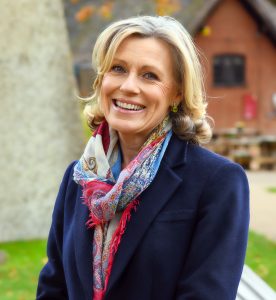In Beacon’s first face-to-face event since the pandemic, philanthropists identified that collaboration was key to supporting the Covid-19 recovery. Some observed a greater movement towards collaboration during the last 18 months, while others felt good intentions had not manifested in donor practice.
We reflect on the Forum to identify why collaboration emerged as the key theme and how the sector can support a drive towards more teamwork.
In the Beacon Forum’s introductory speech, Danny Kruger (MP for Devizes and Parliamentary Private Secretary of the government’s newly formed Department for Levelling-Up, Housing and Communities) spoke of the need for philanthropists and the state to align towards a common mission of supporting left-behind communities.
Collaborative sentiment was further echoed by Dr Beth Breeze (Director of the Centre for Philanthropy and author of In Defence of Philanthropy). Beth highlighted that we must work together to challenge negative narratives around high-net-worth charitable giving.
The real ode to collaboration, though, emerged during the day’s 26 roundtables, addressing 13 topics from across the breadth and depth of the philanthropic sector.
Despite the existence of a specific roundtable on collaboration, the theme ended up permeating a variety of discussions – a nod to its increasing importance in philanthropic circles.
Delegates were effusive in their praise for the resource-pooling, co-funding, best practice-sharing and mentoring which had emerged during the pandemic. Many suggested ways for building on this, including whether inspiring collaboration around geographic regions (rather than only causes) may help in the drive to support local giving.
Others highlighted the essential role that collaboration between grant-makers and beneficiaries had played in providing agency to local communities; it was suggested that donors may feel more comfortable in providing unrestricted funding if they spent more time working alongside those who benefit from their grants.
Cooperation was not limited to donor partnerships, either – the importance of teamwork between sector organisations also shone through. Indeed, conversations highlighted that no less than three philanthropic commitments on climate change, as well as a Commission on unlocking the benefits of individual impact investing, had emerged as a direct result of coalitions between charities, social enterprises and member networks.
Beyond infrastructural developments, Forum delegates opened-up about their increasing desire to engage with peers – many highlighting that this was the first peer-to-peer philanthropic event they had been involved in since before Covid.
As sector organisations, we need to provide platforms for donors to meet, interact, and share their journeys with one another. This will remove blockers to philanthropic giving and open the valve for more private money to flow into the charity sector. It is also essential that we communicate with one another more in our own workflows, accelerating our respective missions to remove impediments to the growth of philanthropy in the UK.
Philanthropy evidently flourishes when it is a team-sport, not a solo endeavour. The desire for greater collaboration can be seen from all sides of the landscape. But desire without action is useless. We urgently need to find mechanisms that connect philanthropists to one another and to those seeking to support them. The time for action is now.
Beacon Forum: Keynote Speeches
- Danny Kruger MBE, Member of Parliament for Devizes; Parliamentary Private Secretary for the Department of Levelling-Up, Housing and Communities; author of ‘Levelling-Up Our Communities.’
- Danny spoke about the true value of philanthropy and the role he believes government can play in helping to unlock it, especially in left-behind communities. View speech (starts at 11:06).
- Dr Beth Breeze, Director of the Centre for Strategic Philanthropy at the University of Kent; author of ‘In Defence of Philanthropy.’
- Beth challenged us to consider the criticisms of philanthropy, the arguments against them, and how we can play an active role in changing the narrative. View speech.
- Sir Paul Collier CBE, Professor of Economics and Public Policy at the Blavatnik School of Government; Director of the International Growth Centre, and the ESRC research network, Social Macroeconomics.
- Sir Paul’s address implored philanthropists “don’t blunder in,” instead asking us to realise how thoughtful and considered giving can play an essential role in rejuvenating broken places. View speech.
Beacon Forum: ‘Challenge Talks’
- Paul Callaghan CBE on fighting the tax vs philanthropy argument and encouraging government match-funding. View speech (starts at 37:12).
- Leonie Taylor on the necessity of the sector reckoning with its own contradictions. View speech (starts at 48:45).
- Tom Ilube CBE on the vital importance of incorporating AI into the future of aid. View speech (starts at 55:17).
Thank you
We remain incredibly grateful to the generosity of our event sponsors – Barclays Private Bank, City Bridge Trust, EQ Investors, I.G. Advisors and Schroders – for making this event possible. Thanks also to our media partners Alliance Magazine, event management organisers Owen James and catering partners The Clink Charity.
We would like to extend our appreciation to all delegates, speakers and moderators for your attendance and enthusiasm in bringing the day to life.
If you have ideas on taking any of these discussions further and advancing philanthropy for the public good, please feel free to email us at info@thinkNPC.org


